第51章 CHAPTER 4(11)
They forget that males are not usually selected at this early age for a seatin Parliament, or for responsible political functions. Common sense wouldtell them that if such trusts were confided to women, it would be to suchas having no special vocation for married life, or preferring another employmentof their faculties (as many women even now prefer to marriage some of thefew honourable occupations within their reach), have spent the best yearsof their youth in attempting to qualify themselves for the pursuits in whichthey desire to engage; or still more frequently perhaps, widows or wivesof forty or fifty, by whom the know- ledge of life and faculty of governmentwhich they have acquired in their families, could by the aid of appropriatestudies be made available on a less contracted scale. There is no countryof Europe in which the ablest men have not frequently experienced, and keenlyappreciated, the value of the advice and help of clever and experienced womenof the world, in the attainment both of private and of public objects; andthere are important matters of public administration to which few men areequally competent with such women; among others, the detailed control ofexpenditure. But what we are now discussing is not the need which societyhas of the services of women in public business, but the dull and hopelesslife to which it so often condemns them, by forbidding them to exercise thepractical abilities which many of them are conscious of, in any wider fieldthan one which to some of them never was, and to others is no longer, open.
If there is anything vitally important to the happiness of human beings,it is that they should relish their habitual pursuit. This requisite of anenjoyable life is very imperfectly granted, or altogether denied, to a largepart of mankind; and by its absence many a life is a failure, which is provided,in appearance, with every requisite of success. But if circumstances whichsociety is not yet skilful enough to overcome, render such failures oftenfor the present inevitable, society need not itself inflict them. The injudiciousnessof parents, a youth's own inexperience, or the absence of external opportunitiesfor the congenial vocation, and their presence for an uncongenial, condemnnumbers of men to pass their lives in doing one thing reluctantly and ill,when there are other things which they could have done well and happily.
But on women this sentence is imposed by actual law, and by customs equivalentto law. What, in unenlightened societies, colour, race, religion, or in thecase of a conquered country, nationality, are to some men, sex is to allwomen; a peremptory exclusion from almost all honourable occupations, buteither such as cannot be fulfilled by others, or such as those others donot think worthy of their acceptance. Sufferings arising from causes of thisnature usually meet with so little sympathy, that few persons are aware ofthe great amount of unhappiness even now produced by the feeling of a wastedlife. The case will be even more frequent, as increased cultivation createsa greater and greater disproportion between the ideas and faculties -- ofwomen, and the scope which society allows to their activity.
When we consider the positive evil caused to the disqualified half ofthe human race by their disqualification -- first in the loss of the mostinspiriting and elevating kind of personal enjoyment, and next in the weariness,disappointment, and profound dissatisfaction with life, which are so oftenthe substitute for it; one feels that among all the lessons which men requirefor carrying on the struggle against the inevitable imperfections of theirlot on earth, there is no lesson which they more need, than not to add tothe evils which nature inflicts, by their jealous and prejudiced restrictionson one another. Their vain fears only substitute other and worse evils forthose which they are idly apprehensive of: while every restraint on the freedomof conduct of any of their human fellow-creatures (otherwise than by makingthem responsible for any evil actually caused by it), dries up pro tantothe principal fountain of human happiness, and leaves the species less rich,to an inappreciable degree, in all that makes life valuable to the individualhuman being.